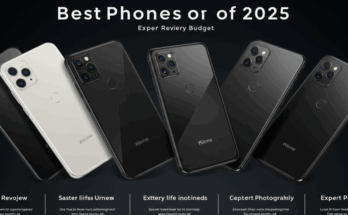Your car is more than just a mode of transportation—it’s an extension of your lifestyle. A well-chosen vehicle complements your daily routine, whether you’re commuting to work, embarking on weekend adventures, or chauffeuring a growing family. The right car can save you money on fuel, reduce maintenance headaches, and provide peace of mind with cutting-edge safety features. On the flip side, a poor choice might lead to buyer’s remorse, high running costs, or a vehicle that doesn’t suit your needs. By carefully evaluating your priorities, you can find a car that feels like it was made for you.
Key Factors to Consider When Choosing a Car
Budget: Setting a Realistic Price Range
Before you fall in love with a sleek sports car or a luxurious SUV, it’s crucial to establish your budget. Consider not only the purchase price but also ongoing costs like insurance, fuel, maintenance, and registration. A good rule of thumb is to allocate no more than 20% of your monthly income to car-related expenses. For example, if you’re eyeing a $30,000 car, factor in financing options, interest rates, and potential trade-in value for your current vehicle. Tools like online car loan calculators can help you estimate monthly payments and ensure you’re not stretching your finances too thin.
Purpose: Matching the Car to Your Lifestyle
What do you need your car for? Daily commutes, long road trips, or hauling kids and groceries? Your lifestyle dictates the type of vehicle that’s right for you. Compact sedans like the Honda Civic or Toyota Corolla are ideal for city dwellers seeking fuel efficiency and easy parking. Families might prefer the spaciousness of an SUV like the Subaru Forester or Honda CR-V, which offer ample cargo room and safety features. If you’re an adventure enthusiast, a rugged pickup truck like the Ford F-150 or a versatile crossover like the Jeep Grand Cherokee could be your perfect match. Make a list of your must-haves—seating capacity, cargo space, or off-road capability—to narrow down your options.
Fuel Efficiency and Powertrain Options
With rising fuel costs and growing environmental concerns, fuel efficiency is a top priority for many buyers. Modern cars offer a range of powertrain options: traditional gasoline engines, hybrids, plug-in hybrids, and fully electric vehicles (EVs). Hybrids like the Toyota Prius combine gas and electric power for excellent mileage, often exceeding 50 MPG. EVs, such as the Tesla Model 3 or Nissan Leaf, eliminate fuel costs entirely but require access to charging infrastructure. If you prefer the roar of a powerful engine, performance models like the Ford Mustang or BMW M3 deliver thrilling drives but may guzzle more gas. Check EPA ratings for fuel economy and consider your daily driving distance to choose the best powertrain for your needs.
Technology and Connectivity Features
Today’s cars are rolling tech hubs, packed with features that enhance convenience and entertainment. Look for vehicles with user-friendly infotainment systems, such as Apple CarPlay and Android Auto, which seamlessly integrate your smartphone for navigation, music, and hands-free calls. Higher-end models, like the Audi Q5 or Mercedes-Benz C-Class, offer advanced touchscreens, voice controls, and even augmented reality navigation. Don’t overlook practical tech like rearview cameras, parking sensors, or wireless charging pads, which make everyday driving more enjoyable. Test-drive a car to ensure its tech interface is intuitive and doesn’t distract from the road.
Safety: Prioritizing Protection on the Road
Safety is non-negotiable when choosing a car. Modern vehicles come equipped with advanced driver-assistance systems (ADAS) like automatic emergency braking, lane departure warnings, and adaptive cruise control. Brands like Volvo, Subaru, and Toyota consistently earn top marks from organizations like the National Highway Traffic Safety Administration (NHTSA) and the Insurance Institute for Highway Safety (IIHS). For families, look for cars with high child seat anchor ratings and rear-seat reminder systems. Always check crash test scores and prioritize models with robust safety suites, especially if you spend a lot of time on highways or in heavy traffic.
Types of Cars: Which One Suits You?
Sedans: Sleek and Efficient
Sedans remain a popular choice for their balance of comfort, efficiency, and affordability. Models like the Mazda3 or Hyundai Sonata offer stylish designs, responsive handling, and excellent fuel economy. They’re ideal for singles, couples, or small families who prioritize a smooth ride and lower price points. Many sedans now come with premium features like leather seats and advanced infotainment, rivaling the luxury of pricier SUVs.
SUVs: Versatility and Space
SUVs dominate the market for their versatility and commanding presence. Compact SUVs like the Toyota RAV4 or Mazda CX-5 are great for urban environments, offering maneuverability and decent mileage. Midsize SUVs, such as the Jeep Grand Cherokee or Ford Explorer, provide more space for families or outdoor gear. Luxury SUVs like the BMW X5 or Lexus RX add premium materials and cutting-edge tech for those seeking a high-end experience. Be mindful of higher fuel consumption in larger models.
Electric and Hybrid Vehicles: The Future of Driving
Electric and hybrid cars are gaining traction as eco-conscious choices. EVs like the Tesla Model Y or Ford Mustang Mach-E offer instant acceleration and zero emissions, perfect for environmentally minded drivers. Hybrids like the Honda Accord Hybrid provide a bridge between gas and electric, offering great mileage without the need for frequent charging. However, EVs require planning for charging stations, especially on long trips, so consider your access to home or public chargers.
Trucks and Vans: For Work and Play
If you need a vehicle for heavy-duty tasks or large families, pickup trucks and minivans are worth exploring. Trucks like the Ram 1500 or Chevrolet Silverado combine rugged capability with modern comforts, making them suitable for towing or off-road adventures. Minivans, such as the Chrysler Pacifica or Honda Odyssey, excel at family transport with sliding doors, flexible seating, and entertainment systems for kids. These vehicles prioritize utility but may sacrifice fuel efficiency.
Test-Driving and Research Tips
The Importance of a Test Drive
Never skip the test drive—it’s your chance to feel how a car handles in real-world conditions. Pay attention to visibility, seat comfort, and ease of use for controls. Test the car on different roads—city streets, highways, and bumpy paths—to gauge its performance. Bring along family members or cargo to ensure the car meets everyone’s needs. Ask the dealer about warranty options and maintenance plans during your visit.
Researching Reliability and Resale Value
Before committing, research the car’s long-term reliability and resale value. Brands like Toyota, Honda, and Lexus are known for durability, often lasting over 200,000 miles with proper care. Websites like Kelley Blue Book or Edmunds provide data on resale values, helping you choose a car that holds its worth. Consumer Reports and J.D. Power offer reliability ratings based on owner feedback, giving you insight into potential repair costs.
Financing and Ownership Costs
Exploring Financing Options
Unless you’re paying cash, financing is a key part of the car-buying process. Compare loan offers from banks, credit unions, and dealerships to secure the lowest interest rate. A higher credit score can unlock better terms, so check your score beforehand. Consider shorter loan terms (36–48 months) to minimize interest payments, even if it means higher monthly payments. Always read the fine print to avoid hidden fees.
Understanding Total Cost of Ownership
The sticker price is just the beginning. Factor in insurance premiums, which vary by model—sports cars like the Dodge Challenger often cost more to insure than sedans like the Nissan Altima. Maintenance costs, such as oil changes and tire replacements, also add up. Electric vehicles may save on fuel but require pricier battery replacements down the line. Use online tools like Edmunds’ True Cost to Own calculator to estimate these expenses over five years.
Making Your Final Decision
After narrowing down your options, weigh the pros and cons of each model. Create a shortlist of three to five cars that meet your budget, lifestyle, and preferences. Compare their features side by side, focusing on what matters most to you—whether it’s fuel economy, cargo space, or tech. Don’t rush the decision; take time to negotiate with dealers and explore certified pre-owned options for added savings. Trust your instincts—if a car feels right during the test drive, it’s likely a great fit.
FAQ
What’s the best car for a family of five?
For a family of five, midsize SUVs like the Honda CR-V, Toyota Highlander, or Subaru Forester are excellent choices. They offer ample seating, cargo space, and top safety ratings. Minivans like the Honda Odyssey are also great for families needing extra room and kid-friendly features.
Are electric cars worth it in 2025?
Electric cars are a smart choice if you have access to charging stations and want to save on fuel costs. Models like the Tesla Model 3 or Ford Mustang Mach-E offer impressive range and performance. However, consider your driving habits and charging infrastructure before committing.
How do I know if a car is reliable?
Check reliability ratings from sources like Consumer Reports, J.D. Power, or Kelley Blue Book. Look for brands with a strong track record, such as Toyota, Honda, or Mazda. Owner reviews and forums can also provide real-world insights into a car’s long-term performance.
Should I buy new or used?
New cars come with warranties and the latest features but depreciate quickly. Used cars, especially certified pre-owned models, can save you money while still offering reliability. Weigh your budget and priorities—new cars suit those who want cutting-edge tech, while used cars appeal to value-seekers.
How can I get the best deal on a car?
Research the car’s market value using tools like Kelley Blue Book or Edmunds. Shop at the end of the month or year when dealers are eager to meet sales quotas. Be ready to negotiate and compare offers from multiple dealerships to secure the lowest price.



